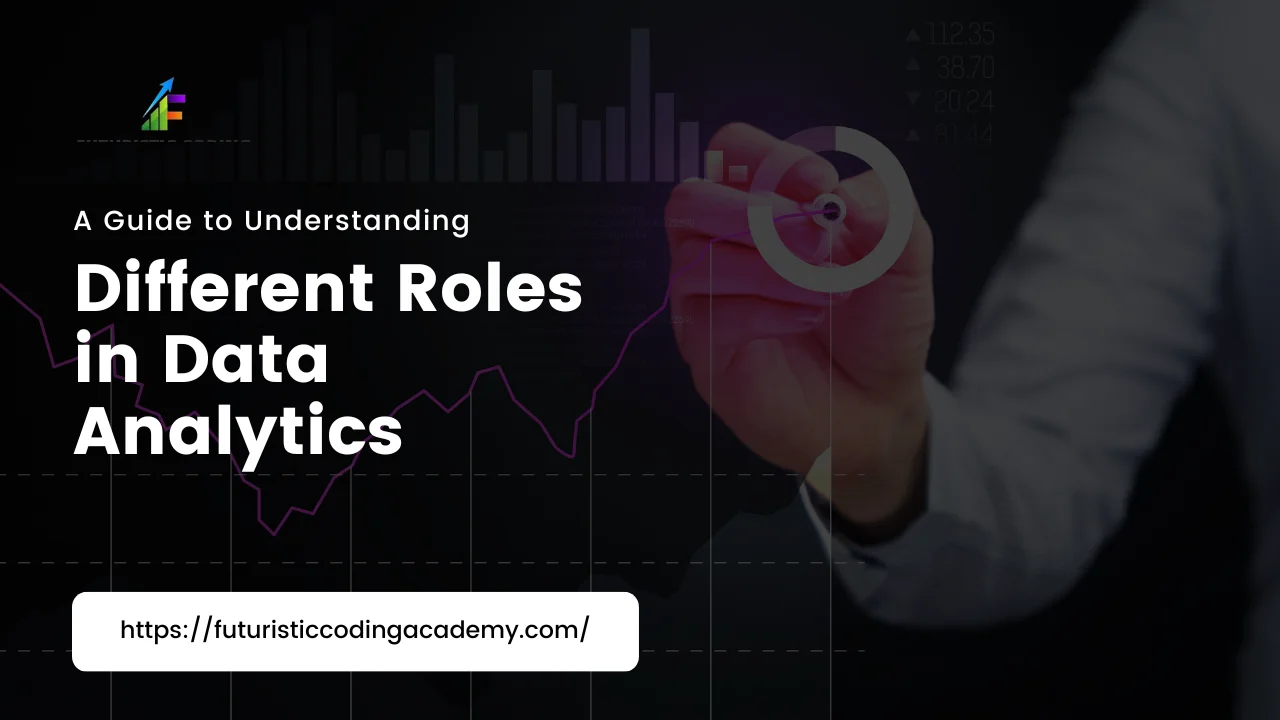Data analytics has become an indispensable tool in today’s digital age. Companies across industries are increasingly relying on data-driven insights to make informed decisions and gain a competitive edge. However, for those new to the field, understanding the different roles in data analytics can be overwhelming. This comprehensive guide aims to demystify the subject and provide you with a clear understanding of the various roles and responsibilities in data analytics.
From data scientists who specialize in extracting valuable insights from complex datasets to data analysts who manipulate and interpret data for business purposes, this guide explores the diverse skill sets and roles within the data analytics realm. Whether you’re interested in pursuing a career in data analytics or simply looking to expand your knowledge, the information presented here will equip you with the essential understanding of each role’s specific functions and the skills required to excel in the field.
Unlock the power of data by delving into this guide and gain insights on how these roles can help drive successful data-driven strategies and decision-making processes across organizations.
Importance of data analytics in today’s business landscape
In today’s data-driven business landscape, the importance of data analytics cannot be overstated. The ability to collect, analyze, and interpret vast amounts of data has revolutionized the way organizations operate. Data analytics allows businesses to uncover patterns, trends, and correlations that can provide valuable insights into customer behavior, operational efficiency, and market dynamics. These insights, in turn, enable companies to make informed decisions and develop effective strategies to drive growth and profitability.
Data analytics also plays a crucial role in improving the customer experience. By analyzing customer data, businesses can gain a deeper understanding of their needs, preferences, and pain points. This information can then be used to personalize marketing campaigns, enhance product offerings, and deliver a more tailored and satisfying customer experience. In a highly competitive marketplace, this level of personalization can be a significant differentiator and drive customer loyalty and retention.
Furthermore, data analytics is instrumental in risk management and fraud detection. By analyzing historical data and identifying patterns, organizations can detect anomalies and potential risks before they escalate. This proactive approach helps businesses mitigate risks, minimize losses, and protect their assets. Additionally, data analytics can aid in fraud detection by identifying unusual patterns or suspicious activities that may indicate fraudulent behavior.
Different roles in data analytics
In the field of data analytics, there are several distinct roles, each with its specific responsibilities and skill sets. Understanding these roles is essential for individuals aspiring to work in data analytics and for organizations looking to build a strong analytics team. Let’s explore some of the key roles in data analytics:
Data analyst: Responsibilities and skills required
Data analysts play a critical role in data analytics. They are responsible for collecting, organizing, and interpreting data to help businesses make data-driven decisions. Data analysts use statistical techniques and analytical tools to analyze data, identify trends, and generate meaningful insights. They also create reports and dashboards that present data in a clear and concise manner, making it easier for decision-makers to understand and act upon the information.
To excel as a data analyst, one must have a strong understanding of statistical concepts and data manipulation techniques. Proficiency in programming languages such as SQL, Python, or R is also essential for data analysts to extract and manipulate data efficiently. Additionally, data analysts should possess excellent communication skills as they often need to explain complex data findings to non-technical stakeholders.
Data scientist: Exploring the role and its significance
Data scientists are often referred to as the “rock stars” of data analytics. They are responsible for extracting valuable insights from complex and large datasets using advanced statistical techniques, machine learning algorithms, and predictive modeling. Data scientists not only analyze data but also develop and implement algorithms and models to automate data analysis and prediction.
To succeed as a data scientist, one must have a strong foundation in mathematics, statistics, and computer science. Proficiency in programming languages such as Python or R is crucial, as is knowledge of machine learning algorithms and data visualization techniques. Data scientists should also possess critical thinking and problem-solving skills to identify and solve complex analytical problems.
Data engineer: Building the foundation for effective data analysis
Data engineers are responsible for building and maintaining the infrastructure necessary for effective data analysis. They design, develop, and implement databases, data pipelines, and data warehouses that enable efficient data collection, storage, and processing. Data engineers work closely with data analysts and data scientists to ensure data accessibility and availability for analysis.
To excel as a data engineer, one must have a strong understanding of database management systems, programming languages, and data modeling techniques. Proficiency in technologies such as SQL, Hadoop, or Spark is crucial for data engineers to handle large-scale data processing. Additionally, data engineers should possess problem-solving skills and the ability to design scalable and efficient data architectures.
Data architect: Designing the framework for data analytics
Data architects play a crucial role in designing the framework and infrastructure for data analytics. They work closely with data engineers and other stakeholders to define the data requirements, develop data models, and create data integration strategies. Data architects ensure that data is structured, organized, and accessible to support data analysis and decision-making processes.
To excel as a data architect, one must have a strong understanding of data modeling techniques, database management systems, and data integration technologies. Proficiency in tools such as ERwin, Oracle, or Microsoft SQL Server is crucial for data architects to design and implement effective data architectures. Additionally, data architects should possess excellent communication and collaboration skills to work effectively with cross-functional teams.
Data visualization specialist: Bringing data to life through visual representation
Data visualization specialists are responsible for transforming complex data into meaningful and visually appealing representations. They use data visualization tools and techniques to create charts, graphs, and interactive dashboards that make it easier for stakeholders to understand and interpret data. Data visualization specialists play a vital role in communicating data insights and driving data-driven decision-making processes.
To excel as a data visualization specialist, one must have a strong understanding of data visualization principles, design aesthetics, and user experience. Proficiency in data visualization tools such as Tableau, Power BI, or D3.js is essential for creating engaging and interactive visualizations. Additionally, data visualization specialists should possess creativity and storytelling skills to effectively convey data insights through visual representations.
Data analyst: Responsibilities and skills required
Choosing the right data analytics role can be challenging, especially with the wide range of options available. To make an informed decision, consider the following tips:
1. Assess your skills and interests: Reflect on your strengths, skills, and areas of interest to determine which data analytics role aligns best with your abilities and passion.
2. Research the role requirements: Understand the specific skills, knowledge, and experience required for each data analytics role to assess whether you meet the criteria or need to acquire additional skills.
3. Explore career paths: Research the career paths and growth opportunities associated with each data analytics role to determine the long-term prospects and potential for advancement.
4. Seek guidance: Consult with professionals already working in the field or seek advice from mentors to gain insights into the different data analytics roles and their suitability for your career goals.
5. Gain practical experience: Consider internships, freelance projects, or online courses to gain hands-on experience and exposure to the different data analytics roles before making a final decision.
Data scientist: Exploring the role and its significance
Data analytics has emerged as a powerful tool that drives successful data-driven strategies and decision-making processes across organizations. Understanding the different roles in data analytics is crucial for individuals looking to embark on a career in the field and for organizations aiming to build a strong analytics team. By unlocking the power of data and leveraging the diverse skill sets within data analytics, businesses can gain valuable insights, make informed decisions, and stay ahead in today’s competitive business landscape.
Unlock the potential of data analytics, explore the various roles, and embrace the power of data-driven decision-making. Start your journey towards becoming a data analytics expert and make a significant impact in the world of data.
—
Congratulations! You’ve reached the end of this comprehensive guide on understanding different roles in data analytics. We hope this guide has provided you with the clarity and knowledge needed to navigate the world of data analytics effectively. Whether you’re a beginner or an experienced professional, the field of data analytics offers endless opportunities for growth and impact. Embrace the power of data, unlock its potential, and let it guide you towards success in the digital age.
Remember, data is not just numbers and statistics. It is a valuable resource that can revolutionize the way we do business, solve problems, and make decisions. So, dive in, explore the different roles, and harness the power of data analytics to drive innovation, growth, and success.
Data engineer: Building the foundation for effective data analysis
The role of a data scientist is critical in the field of data analytics. Data scientists are responsible for extracting valuable insights from complex datasets using advanced statistical and machine learning techniques. They possess a deep understanding of mathematics, statistics, and programming, allowing them to analyze large volumes of data and uncover patterns or trends that can inform business strategies.
Data scientists work closely with stakeholders to identify business problems and formulate data-driven solutions. They are skilled in data wrangling, data cleaning, and feature engineering, ensuring that the data is of high quality and suitable for analysis. Moreover, data scientists have expertise in various programming languages such as Python or R, as well as knowledge of machine learning algorithms and data visualization tools.
By leveraging their skills, data scientists can help organizations gain a competitive edge by providing actionable insights. For example, they can develop predictive models to forecast customer behavior, optimize pricing strategies, or identify potential risks. The role of a data scientist is ever-evolving, as new technologies and techniques emerge, making it an exciting and in-demand career path in the field of data analytics.
Conclusion: Embracing the power of data analytics
With the diverse range of roles and responsibilities in data analytics, choosing the right path can be a daunting task. Here are some tips to help you make an informed decision:
1. Assess your skills and interests: Consider your strengths, interests, and goals. Are you more inclined towards coding and programming? Or do you enjoy working with data and uncovering patterns? Understanding your skills and interests will help you identify the role that aligns with your strengths and passion.
2. Research the roles: Dive deep into each role, understanding the specific responsibilities, required skills, and career prospects. This will give you a better understanding of what each role entails and whether it aligns with your aspirations.
3. Gain practical experience: Take advantage of internships, online courses, or personal projects to gain hands-on experience in different roles. Practical experience will not only help you develop relevant skills but also provide valuable insights into the day-to-day responsibilities of each role.
4. Seek mentorship or guidance: Connect with professionals in the field of data analytics and seek their guidance. Mentors can provide valuable advice based on their own experiences and help you make an informed decision.
5. Embrace continuous learning: Data analytics is a rapidly evolving field, with new technologies and techniques emerging constantly. Embrace a mindset of continuous learning and stay updated with the latest trends and advancements. This will ensure that you remain competitive and adaptable in the dynamic field of data analytics.
By considering these tips, you can make an informed decision and choose the right data analytics role that aligns with your skills, interests, and aspirations.






